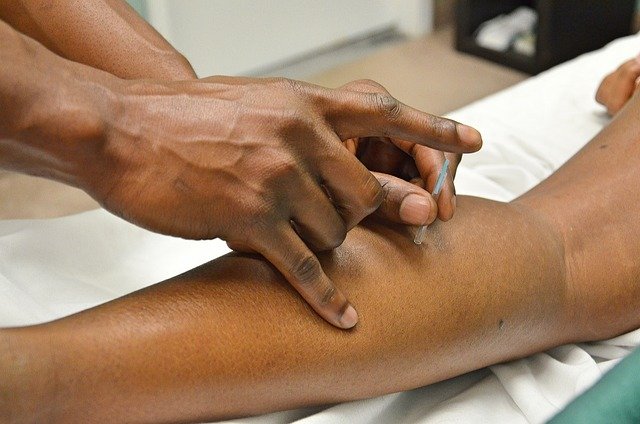Scalp Psoriasis in Seniors – Symptoms, Causes, and Relief Tips
Scalp psoriasis affects millions of older adults across the United States, presenting unique challenges that differ from other age groups. This chronic autoimmune condition causes red, scaly patches on the scalp that can extend beyond the hairline, leading to discomfort, embarrassment, and potential complications if left untreated. While psoriasis can develop at any age, seniors often experience different triggers and may require modified treatment approaches due to age-related factors such as medication interactions, skin sensitivity, and overall health considerations.

Understanding Scalp Psoriasis Causes in Older Adults
The development of scalp psoriasis in seniors involves multiple factors that can be particularly relevant to aging adults. The immune system undergoes changes with age, potentially making older adults more susceptible to autoimmune conditions like psoriasis. Genetic predisposition remains a primary factor, with research indicating that individuals with family histories of psoriasis have higher risks of developing the condition later in life.
Environmental triggers play a significant role in scalp psoriasis onset among seniors. Common triggers include stress from major life changes such as retirement or health concerns, certain medications frequently prescribed to older adults including beta-blockers and lithium, and seasonal changes that can dry out aging skin. Additionally, hormonal changes, particularly in postmenopausal women, can contribute to psoriasis flare-ups or initial development.
Early Warning Signs of Scalp Psoriasis in Seniors
Recognizing the initial symptoms of scalp psoriasis is crucial for early intervention and management. The condition typically begins with small, red patches covered by silvery-white scales that may initially be mistaken for severe dandruff or seborrheic dermatitis. Unlike common dandruff, psoriatic scales are thicker and more adherent to the scalp, often appearing silvery or white.
Seniors should watch for persistent itching that doesn’t respond to regular dandruff treatments, areas of hair thinning or temporary hair loss where plaques develop, and scaling that extends beyond the scalp to the forehead, neck, or behind the ears. The affected skin may feel tight or painful, and scratching can lead to bleeding or secondary infections. Some older adults also experience what’s known as the “Koebner phenomenon,” where new psoriatic lesions develop at sites of skin injury or irritation.
Effective Home Remedies and Treatment Options
Several home remedies can provide relief for seniors dealing with scalp psoriasis, though these should complement rather than replace professional medical care. Gentle, fragrance-free moisturizers applied to damp scalp skin can help maintain hydration and reduce scaling. Coal tar shampoos, available over-the-counter, can slow skin cell production and reduce inflammation when used as directed.
Topical treatments prescribed by healthcare providers often include corticosteroid solutions or foams specifically formulated for scalp application. Vitamin D analogs like calcipotriene can be effective for long-term management, while newer treatments such as topical calcineurin inhibitors may be suitable for sensitive areas around the hairline. For more severe cases, healthcare providers might recommend phototherapy or systemic medications, though these require careful monitoring in older adults due to potential interactions with other medications.
Tips for Managing Scalp Itching and Flaking
Daily management strategies can significantly improve comfort and reduce visible symptoms of scalp psoriasis in seniors. Using lukewarm water instead of hot water when washing hair helps prevent further skin irritation and dryness. Gentle, sulfate-free shampoos should be used, avoiding vigorous scrubbing that can worsen inflammation and lead to the Koebner phenomenon.
Stress management techniques become particularly important for seniors, as emotional stress can trigger psoriasis flare-ups. Regular exercise appropriate for individual fitness levels, meditation, or engaging in enjoyable hobbies can help reduce stress-related symptoms. Maintaining a consistent sleep schedule and staying hydrated also support overall skin health. When styling hair, seniors should avoid tight hairstyles, harsh chemicals, and excessive heat from styling tools that can irritate sensitive scalp skin.
Treatment Costs and Options
The financial aspect of scalp psoriasis treatment varies significantly depending on the chosen approach and insurance coverage. Over-the-counter treatments typically range from $8 to $25 for medicated shampoos and topical products. Prescription topical medications can cost between $50 to $200 monthly without insurance, while newer biologic treatments for severe cases may reach $1,000 to $5,000 per month before insurance coverage.
| Treatment Type | Provider/Product | Monthly Cost Estimate |
|---|---|---|
| OTC Medicated Shampoo | Neutrogena T/Gel, Selsun Blue | $8 - $25 |
| Prescription Topical | Corticosteroid solutions/foams | $50 - $200 |
| Dermatologist Consultation | Local dermatology practices | $200 - $400 |
| Phototherapy Sessions | Hospital outpatient centers | $300 - $800 |
| Biologic Medications | Humira, Stelara, Cosentyx | $1,000 - $5,000 |
Medicare typically covers medically necessary psoriasis treatments, including dermatologist visits and prescription medications, though coverage specifics vary by plan. Many pharmaceutical companies offer patient assistance programs for expensive biologic treatments, potentially reducing out-of-pocket costs for qualifying seniors. Local services in your area may also provide support groups or educational resources to help navigate treatment options and insurance coverage.
Prices, rates, or cost estimates mentioned in this article are based on the latest available information but may change over time. Independent research is advised before making financial decisions.
Managing scalp psoriasis as a senior requires a comprehensive approach that considers both the physical symptoms and the unique challenges faced by older adults. Early recognition of symptoms, appropriate treatment selection, and consistent management strategies can significantly improve quality of life. Working closely with healthcare providers ensures that treatment plans are tailored to individual needs while considering other health conditions and medications commonly present in older adults.
This article is for informational purposes only and should not be considered medical advice. Please consult a qualified healthcare professional for personalized guidance and treatment.




